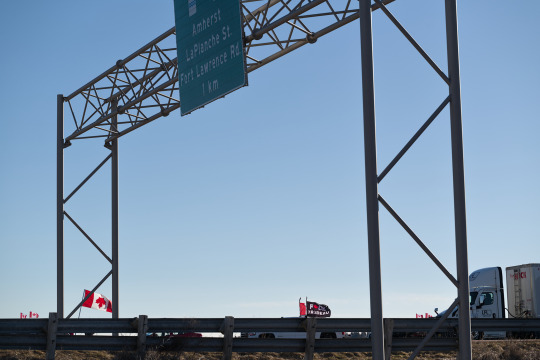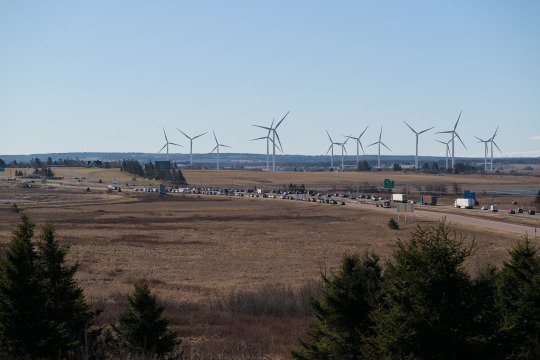#carbon taxes
Text
Ban private jets to address climate crisis, says Thomas Piketty
1 note
·
View note
Text
What if we slapped carbon taxes on shareholders not consumers?
“Focusing carbon taxes on shareholder income linked to GHG emissions could help pressure companies to lower their emissions.”
[COMMENTARY] A fascinating idea. However, I’d need to examine it thoroughly before giving it my okay.
What if we slapped carbon taxes on shareholders not consumers? By Jared Starr, August 18, 2023, Corporate Knights, Canada.
View On WordPress
0 notes
Text




He also has a smaller jet with his Trump crest painted on and a helicopter painted to match the 757. All the registration numbers end in DT.
#republican assholes#traitor trump#crooked donald#eat the rich#tax the rich#resist#republican hypocrisy#maga morons#trumps carbon footprint
178 notes
·
View notes
Text
If tax cuts give you $100 back in your wallet yet it gives the rich, $10,000 back in theirs, you are not $100 richer. Money is relative to wealth. When we give handouts or tax breaks and most of it goes to the rich YOU. GET. POORER. Tax the rich, don't just cut carbon taxes.

707 notes
·
View notes
Text
Like a lot of government programs, people don't know about it, so they don't get the benefits of it.
62 notes
·
View notes
Note
Given how fast things are getting worse, forget moral worries about air travel: is it acceptable for me to drive anywhere, including work? Is it morally acceptable for me to continue to live at all, and thus keep putting carbon into the environment?
I just listened to an old livestream by the Unlearning Economics guy about the carbon taxes vs renewable subsidy issue. He was more skeptical of carbon taxes than I expected, given that they're, like, the Standard Prescription among economists for climate change, being putatively politically neutral and in the right circumstances (i.e., in conjunction with rebates) not necessarily super regressive.
But they're politically toxic, and he pointed out, this isn't just because people don't want to do anything about climate change. It's because the costs them impose on most people, like on transport, are on the parts of their lifestyle that it's most difficult for them to change. You by yourself cannot change the structure of the housing market where you live; and if you live in a wasteland of Euclidean zoning, then short of upending your life and moving to a city designed on completely different lines (which in North America is likely to be a very high cost of living area) there's not a lot you can do about it. There are things on a longer time horizon that carbon taxes might incentivize, like more mass transit, that would help with this, but to voters the most transparent effect of a carbon tax is likely to be a big price spike at the fuel pump, and the cost of their electricity going up. That sucks ass!
In those circumstances, there are some taxes that make sense (like taxes on air travel, which emits a lot of carbon and which people use much less, and in a way much more weighted to their income [except among first-generation immigrants, so you might want to account for that also]), and you might consider smaller carbon taxes in conjunction with other policies, but it also makes sense to do a lot of direct investment in renewables, i.e., subsidies, which do seem to be pretty effective. And of course making it easier to build nuclear power wouldn't hurt either!
All of which is also to illustrate that individual choice is kind of a red herring, bc climate issues are a large-scale coordination problem. "If everyone would just--" is a useless line of thinking, especially when it gets turned around to "I'm a bad person if I don't--." Because when it comes to this kind of coordination problem, there are active incentives pushing people away from doing the thing that you think they "should," and no amount of haranguing others (or yourself) will make it any easier to, say, live a car-independent lifestyle in a region with poor mass transit that's designed around single-family homes.
Expecting people to live the lives of ascetics, actively suffering for a nebulous good whose results they cannot hope to perceive in their lifetime, is not just foolish but kinda mean-spirited. Much better to do what you can to help coordinate solutions--to vote for people who are reform-minded on climate issues; maybe to donate your time or skills if you have something specific to contribute--and not to beat yourself up over it.
I really think this framing of your personal carbon footprint as a kind of sin you have to expiate is deeply counterproductive. It's just scrupulosity updated for the modern day. Unless you are the CEO of British Petroleum, or you set forests fires for sport or something, you can relax about this a little bit.
#apparently the actual empirical evidence for carbon taxes is kind of thin#though this is in part bc they're so unpopular
86 notes
·
View notes
Photo

Counties that have introduced a carbon tax.
The carbon tax is imposed on the burning of fossil fuels such as coal, oil, and gas, which release carbon dioxide and other greenhouse gases into the atmosphere.It is based on the idea that the companies that produce and use fossil fuels should bear the costs associated with the damage they cause to the environment and human health.
143 notes
·
View notes
Text
Saw a post and just want to say: yeah ‘carbon offsets’ are usually bullshit. Sure some smaller land owners might actually be planting diverse native trees in proportion* to their carbon emissions. But as someone who’s worked with The Big Ones? Absolutely horseshit.
8/10 times they find a landowner with a crappy high graded beech-birch thicket and say to the owner: ‘Hey. We’ll pay you to not cut these trees you weren’t planning on/won’t be able to cut for a profit for the next 20-40 years anyway, and you’ll get a kickback.’ Ofc the owner says yes and the Big One can pat themselves on the back and show their stockholders ‘see we’re sooooo interested in reducing our carbon footprint’ when they’re straight up Doing Nothing.
When a Big One does engage in actual tree planting it is always a monoculture. There is not an economically viable way to plant the number of trees needed to proportionally offset their emissions* without it being a thoughtless monoculture without regard for site specificity and seedling survival rates.
How about instead of doing fuck all or wasting time and resources planting monocultures these big companies actually reduce their emissions instead of using their near infinite well of wealth to increase their emissions because they can always buy more crappy stands or pay a little more to plantation owners?
*Fun fact: we are barely at the cusp of carbon research being able to answer the long term + actual potential of carbon storage of different stands based on their age and species composition. We know that younger stands grow faster and therefore capture carbon at an increased rate compared to older stands. Realistically, a large older stand will capture comparative levels of carbon to a small younger stand. You just did a huge clear cut? Congrats that’s now a massive carbon sink you can get paid to ignore it the way you would be anyway for the next 50-60 years. Unsurprisingly this does information does not incentivize the conservation of old growth stands, because the most Carbon Efficient thing to do would be to cut all the old growth for timber (preserving it from decomposition and releasing carbon in most cases) and let new, young, fast growing forests replace them. Who cares about ecological nuance? We’re storing more carbon this way!
#ra speaks#personal#carbon credits#carbon capture#forestry#forests#environmentalism#people who read an ngo article on how Great carbon credits are: how dare you suggest this system could be abused!#and I’m just like. bro. babe. beloved. I’m going to take you up north and show you the ecologically devestated beech-birch thicket#that my undergrad used as tax write off bc the last land manager fucked over the schedule for a quick profit
18 notes
·
View notes
Text





Carbon tax protest this morning on the Nova Scotia and New Brunswick border.
12 notes
·
View notes
Text

4 notes
·
View notes
Text
"An Oxfam analysis with the Stockholm Environment Institute found the following:
The per capita [carbon] emissions of someone in the top 1 percent is 100 times higher than someone in the bottom 50 percent, and 35 times higher than the target for 2030.
Since 1990, the richest 5 percent was responsible for over a third of the growth in total emissions. The top 1 percent was responsible for more than the whole of the bottom 50 percent.
For about 20 percent of the human population — corresponding to the working and lower-middle classes in rich countries, mainly — per capita emissions actually fell from 1990 to 2015...
Looking at the emissions of different income groups and the nature of those emissions has the potential to transform climate policymaking. To maintain any level of fairness, the richest must make by far the biggest cuts to their emissions. This is true in both rich and developing countries.
This means, for example, that we should have not a flat carbon tax but a progressive carbon tax: the more carbon you use, the higher the tax you pay. Polluting investments should have additional punitive taxation put on them or, better still, simply be banned. Luxury goods and private jets should be heavily taxed or heavily restricted. Each national action to tackle climate should be taken progressively, in ways that make the richest, highest emitters shoulder most of the cost, and in turn contribute to increasing equality, not inequality.
General increases in taxes on the richest and on wealth, as well as other moves to rapidly reduce inequality, also take on a whole new climate imperative. Our planet simply cannot afford the very rich."
- Max Lawson, from "The Rich Are the Ones Burning the Planet." Jacobin, 10 October 2022.
#max lawson#quote#quotations#eat the rich#oxfam#stockholm environment institute#climate policy#carbon tax#carbon emissions#economics#climate change#climate crisis#inequality#fossil fuels#environmentalism#capitalism
57 notes
·
View notes
Text

Carbon taxes, for The Economist
Art direction by Ben Shmulevitch
6 notes
·
View notes
Text
Still, awaiting your GST or Tax refund? Get it earlier than your family and friends like over 1 million other Canadians. The Secret?
https://web.koho.ca/referral/RV2TV073
Get your FREE ACCOUNT HERE. Canadian Accounts with cash back, high-interest rates and free over-draft protection to name a few benefits. #directdeposit #GST #incometax #familybonus #childtaxcredit #workingbenefit Refunds #credit #deposit #banking #finaince #overdraft #freeaccounts #badcreditok #mastercarddebitcard #rewards #incometaxrefund #CRAdirectdeposit #GSTcredit #GSTcreditpayment #childtaxpayment #earlydeposit #mastercarddebitcard
#youtube#canada#vancouver#business#abbotsford#news#music#ontario#GST#GST Credit#GSt payment#banking#direct deposit#early payment#family#child tax#child tax benefit#carbon tax credit#tax refund#tax refund deposit#GST Credit deposit#cash back#high interest#mastercard#interac#free#accounts#overdraft#free overdraft#credit rebuilding
4 notes
·
View notes
Text
why did ground news remove the "local" tab?? only canadian news i can find is big stories ive heard about before
#just big stuff like. idk#justing trudu does carbon tax oh no#im sorry but i REFUSE to watch local news on youtube the only ppl who do that are boomers#if u hit up the comments its pretty obvious 💀its aaaaalll rightwing boomers#personal#not dog
2 notes
·
View notes
Text
The federal government's proposed tax credit to incentivize companies to capture and store carbon dioxide underground doesn't exclude projects that also involve extracting more oil, according to policy experts who reviewed a draft of the long-promised legislation.
First announced in the 2021 federal budget, the tax credit is intended to "support and accelerate" carbon capture — a blanket term that refers to technology used to sequester CO2 and store it safely underground — to reach net-zero emissions by 2050.
Projects where the carbon is piped away to an oil field, and injected underground to recover more oil, through a process known as "enhanced oil recovery" (EOR), were not to be included, the government said at the time.
But the latest draft legislation shows the tax credit will be available to projects that are, in part, using the captured carbon for that purpose.
Continue Reading
Tagging @politicsofcanada
#cdnpoli#canada#canadian politics#canadian news#carbon capture#enhanced oil recovery#carbon tax#oil industry#fossil fuels#climate change
58 notes
·
View notes
Text
The investigation is a sharp turn from the government's position last week when it twice declined to investigate the company in the legislature despite calls from opposing parties.
Birds of a feather flock together...

#enough said#david eby#justin trudeau#bc ndp#liberal party of canada#scandal#corruption#conflict of interest#bribery#mnp#british columbia#canada#politics#carbon tax
2 notes
·
View notes